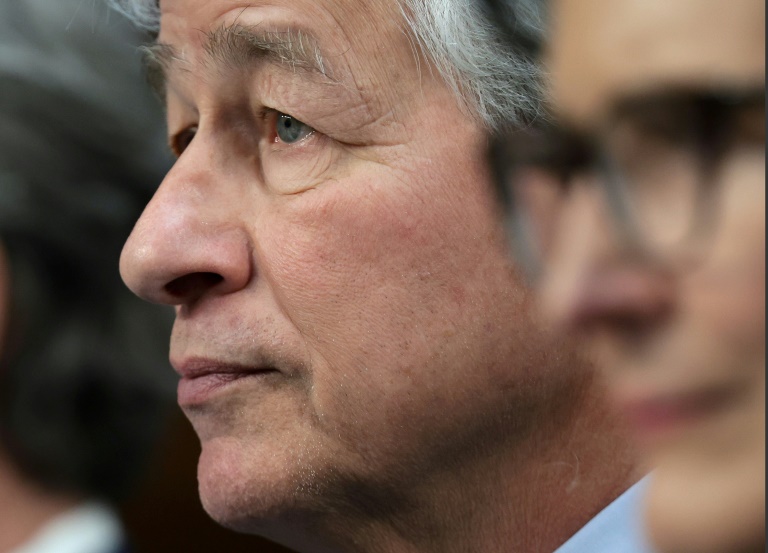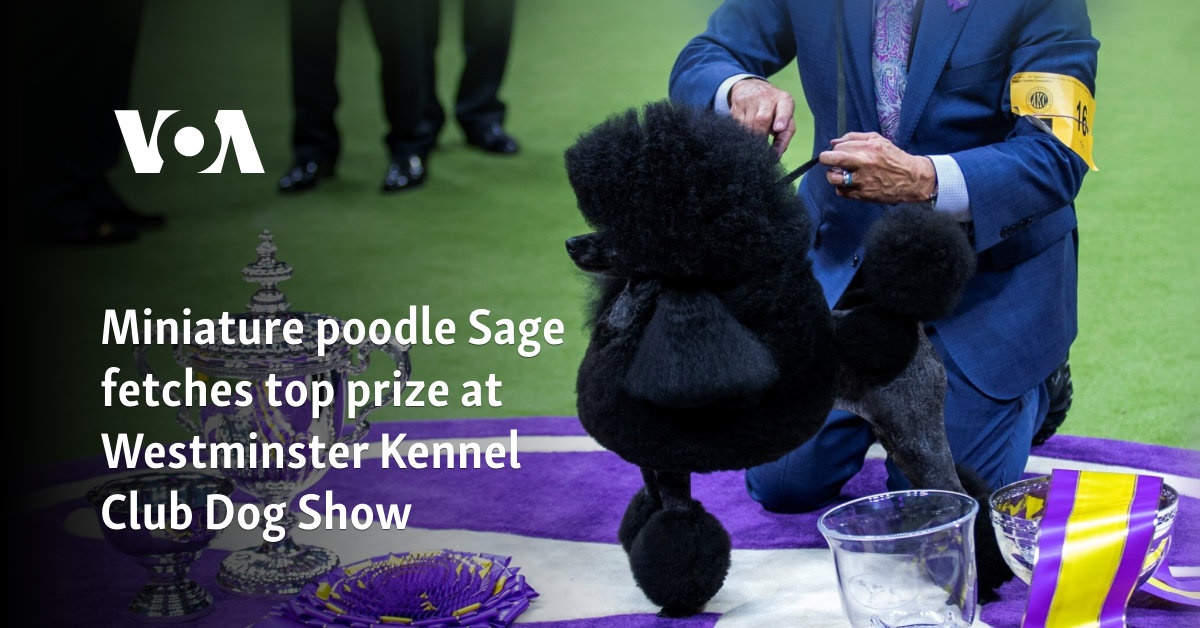Zainab Ado Bayero, the daughter of a former Emir of Kano, Ado Bayero, who ruled from 1963 to 2014, has opened up about her unconventional journey into filmmaking.
Her father was the longest-serving emir in Kano’s history.
Her recent biopic, ‘My Father, the Emir: A Portrait of Ado Bayero,’ chronicles the life and times of one of the most revered monarchs in Africa’s history, from his early beginnings as a young prince to the top of the royal hierarchy of the Fulani caliphate and his journey as the Emir of Kano.
In an exclusive interview with PREMIUM TIMES, the Nigeria-based filmmaker speaks about inadequate representation of Northern Nigeria in the fim industry and the challenges she has encountered while shooting the biopic.

Excerpts:
PT: Unlike many Nigerian royals, you are a filmmaker; what inspired your journey into filmmaking?
Zainab: As a princess from Kano, I’ve always felt pressure to live and act in specific ways. My mum raised me to be independent and exposed me to the Western culture. Even though I was growing up in a strict conservative society, I had to choose my path.
As I grew up, I realised I had some talents and ambitions which weren’t by being the typical Muslim Fulani princess; I guess because my mum is a princess from a different culture.
I grew up on bestselling novels and movies, so I decided to step out of my comfort zone and try movies last year. I discussed it with my mum, and she was so supportive.
PT: Aside from filmmaking, what unconventional things do you enjoy doing that are uncommon for royalty or even a Muslim?
Zainab: I love to write. I have been writing stories and poems for years but have yet to publish them. I didn’t feel comfortable being a writer or creative.
I love fashion. I think fashion would be an industry I would love to explore, but I don’t dress in an abaya or hijab or the Hausa traditional outfits. And those passions are unconventional for a Fulani Hausa royal from the north.
PT: As a filmmaker, would you say the narrative of northern Nigeria has been well explored compared to southern Nigeria?
Zainab: As a filmmaker, I have never watched Kannywood movies; they are not a true reflection of the North, and the technicalities are not world standard.
The North doesn’t portray its culture and rich history like the southerners. I’m trying to change that narrative. The Fulani-Hausa culture is unique and different, but we don’t tell our stories to the world. It shouldn’t just be about musicals. We should tell thought-provoking and powerful tales that the world would love. The society is nuanced and multilayered in rich history, but the North does not say it in literary or cinematic formats.
PT: People see you as a different kind of a ‘Muslim Girl’; is that a misconception or a fact?
Zainab: Yes. Like I said, I wear jeans, shirts, and gowns. I hardly wear traditional pieces. I don’t cover up all the time.
So, the North have always judged my personality and my style. I am a Muslim. I’m a good girl; I don’t party or deviate from the proper teachings, but people think because I don’t cover up, I’m not a decent Muslim girl, which isn’t true. I’m a Muslim girl who is also modern and innovative, and that’s my trajectory.
PT: For a royalty like yourself, one would think you had a rosy journey in filmmaking. Were there times you encountered challenges?
Zainab: While making the biopic, I was trying to launch this incredible documentary about an iconic leader who happens to be my dad. I have been sabotaged and judged by people who should encourage and be honoured about this project.
Every dignitary I have approached from the corridors of power – politicians, Emirs, and Kano business people – has made it clear: the Emir of Bichi and Emir of Kano and other family members have insisted I shouldn’t launch or be allowed to showcase this documentary.
It’s my idea, and I’m promoting the history and culture of Kano in a positive light. I’m showing there’s more to the Fulani and Hausas rather than being judged as terrorists, bandits or Almajiris.
PT: Did their opposition make you feel like giving up?
Zainab: I’m exploring a positive image but feel like I’m Red Riding Hood attacked by wolves. Even during the making of the documentary, they tried to threaten people not to help me while shooting in Kano. I’ve often wanted to give up, but my mum, my junior brother, and people in the South have encouraged me not to stop or give up.

The world is changing. I’m not trying to cause any harm; I want to educate and entertain. Why are the Emirs so hell-bent on frustrating me and stopping me from preserving my father’s legacy?
Maybe it’s because I love to dress in what I’m comfortable with or because my mum is not northern, but it’s wrong.
My dad believed in unity; that’s why I was born, but they judged his choices and my existence as a man who thought in accordance and loved his sons as much as he loved his daughter.
I know they will sabotage me and try to kill me for saying this, but I don’t care; I’m my mother’s daughter, I’m vocal, and I’m following my dad’s footsteps, uniting people with art.
PT: With all these attacks and opposition, what has been your driving force and source of confidence?
Zainab: The need to tell my father’s story has always been my drive. The biopic was inspired by a discussion with my mum about my first project. I had different ideas, but my mom suggested I tell my dad’s story, telling him he needs to be remembered.
At first, I was very hesitant because I felt I would go through significant obstacles and be judged by the family and the North, but my mom insisted I had to take the task. After much convincing, I agreed, but dealing with forces trying to stop it, as I knew before starting it, was challenging.
PT: Aside from the Emirs and elites, have you been criticised by any religious groups?
Zainab: As I said, The Emirs, my father’s sons, are judging me based on religious ideals, which is ridiculous. This is art; religion plays no role in creativity.
I have encountered no religious sects, but I won’t be surprised if they do. It comes with the territory, but times are changing; I mean, look at Saudi Arabia; it’s radically changing. They hosted a film festival, and women were allowed to drive and be creative, so Kano could learn from that and adapt like Saudis.
PT: How have you managed criticism?
Zainab: Well, I’ve been criticised all my life. I’m used to it now, but it does hurt when people feel they can judge you even when they don’t know the real you, make assumptions about you, but I have to go on. I can’t let words get to me or stop me from my dreams.
This project isn’t the first time my father’s sons, the two Emirs (Aminu Ado Bayero and Nasir Ado Bayero – the Emir of Kano and Bichi) have tried to sabotage or intimidate me. It’s been going on for years, but I don’t want to talk about that because, like I said, they have the power to control everyone. I want this project to be launched and released without any more sabotage and threats from them. I want to live my life without fear of intimidation and oppression.
PT: What common misconception do people have about royalties?
Zainab: There is a lot. People would feel I’m arrogant or snobbish, but no, I’m pretty grounded. I am blunt and vocal, which isn’t expected from a northern female royal, but that’s who I am. But royals, some are cocky, mean, humble, and kind. We are just like everyone else with different personalities.
PT: Tell us about your childhood, experiences, aspirations, and goals.
Zainab: I grew up in Kano, raised by an Edo mum. I needed to speak the language or understand the ways. I was split between two cultures. My mum is also a Muslim but a lot more Liberal.
So I tried to choose which side was the Fulani or the Edo kind of girl. As I grew up, I knew I was both, so I found a balance between both sides. I never wanted to be a simple woman behind the scenes or be subservient to men. No, that was never me. Today, I’m glad I chose to be confident and believe in myself.
Growing up, I wanted to be a doctor or lawyer and make changes. I knew I wanted to change and challenge the status quo, and I’m doing that right now. Making history by being the first Muslim royal filmmaker from the north, I guess I am changing a system.
PT: As the daughter of an Emir who reigned for five decades, what lessons did you learn from him?
Zainab: I learned a lot more from the making of this documentary. He worked hard to achieve his dreams. His belief in unbelief, peace, and his tenacity in the face of significant changes and obstacles.
PT: Why do you think the elites and emirs are trying to sabotage your efforts?
Zainab: The first reason that I’m a woman. This society doesn’t encourage a woman to have a voice or power. Women in that society should be seen, not heard. Secondly, I’m half-southern. They don’t think I’m a proper Hausa; I don’t truly belong. It is the prejudice that goes on in that society. The prominent people instigating this negativity are the Emirs of Kano and Bichi. They have spoken to the other Emirs not to encourage this piece of history and culture because they feel it’s supposed to be someone else. They think they should be the only people to speak about or control his life and that no other child has a right to decide how to preserve his legacy. I’m a young woman, so it insults their ego. They want to be in charge and control everyone within the family, but I don’t believe in that. They cannot hold me or dictate how he should be promoted. He was a public figure, an iconic hero. Anyone who admires and loves him can tell his story. They hate me and my mum, so that’s why they are using their influence to sabotage a project about my father, which is so unfortunate. People are buying into their stories, which are just lies.
PT: Are you saying that no Northern elites have supported you?
Zainab: Not one of them I wrote to or approached about my project has supported the launch: Dangote, Bua, Ganduje, the Kano State Government and the Lagos State Government. I wrote to them all, and I’ve not received any support for this project. It’s so shocking. I thought the government was trying to support the creative industry these days, but they have ignored this project like I’m an enemy of the state. Influential people should empower youth and encourage people like me who promote culture and history. That’s why so many Nigerian youths are so angry we don’t get encouraged by our leaders. The Emirs and dignitaries, rather than raise the children, oppress them; what’s the future if today’s leaders don’t encourage the leaders of tomorrow? Then why should they be Emirs? Why should they be on the throne? To intimidate and oppress? The monarchy may be losing its value by having the wrong people rule.
PT: What’s your educational background? Is this your last shot at filmmaking?
Zainab: I went to school for a year and a half as a kid in London, then returned home to Nigeria. I didn’t study movie-making. I would love to do more movies because I love telling stories and creating.
READ ALSO: Flashback: Tunde Kelani’s 2008 Nollywood classic ‘Arugba’
PT: Share more details about the biopic, how it was funded and the aim. Would you like to screen it at festivals?
Zainab: The documentary was shot in Kano; I began shooting In January 2023, took a break to shoot in February, and worked on post-production in March and April. No one funded me. It was self-funded by me and my mum. I aim to showcase this to a global audience to teach about a forgotten history and culture. Yes, I hope so.
Support PREMIUM TIMES’ journalism of integrity and credibility
Good journalism costs a lot of money. Yet only good journalism can ensure the possibility of a good society, an accountable democracy, and a transparent government.
For continued free access to the best investigative journalism in the country we ask you to consider making a modest support to this noble endeavour.
By contributing to PREMIUM TIMES, you are helping to sustain a journalism of relevance and ensuring it remains free and available to all.
Donate
TEXT AD: Call Willie – +2348098788999











